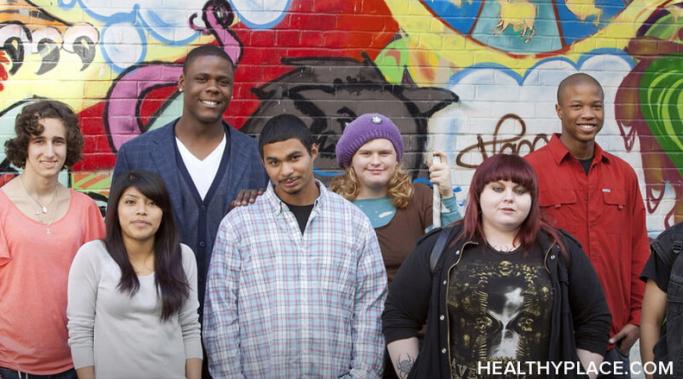Mental Health Treatment Circle
If you believe that someone you care about is at risk for suicide, you may feel worried, helpless, or unsure how to help (Understanding and Helping the Suicidal Person). If that person is you, chances are that you might not even feel like you do care about yourself, or that anyone cares about you. But, the truth of the matter is that even if it doesn't feel like it, someone does care very much. Suicidal thoughts have an uncanny ability to shut out any positive thought processes and make the suicidal person believe, falsely, that his or her life does not matter.
Completing treatment for an addiction to drugs and/or alcohol can make you feel as though you have won a difficult battle. And while this is true, it is also important to keep in mind that support systems can be an extremely beneficial way for you to receive the ongoing encouragement necessary for remaining successful in your addiction recovery (Importance of Drug Addiction Support).
Does your child know about your addiction? Although you may not have formally talked to your child about your drug addiction or alcoholism, depending on your child's age, there's a good chance they already recognize there's a problem (Children See the Truth No Matter What We Say). If that's the case, you may be thinking, "How do I talk to my child about my addiction?"
Despite considerable effort by parents, professionals, and others to reduce stigma and enhance understanding of teen mental health issues, a troubling amount of misinformation remains (Youth And Mental Illness Stigma). This post is one humble attempt to dispel four unfortunately common stigmas about teens and their mental health.
Undiagnosed trauma can lead to substance abuse, and unfortunately, it happens too often. Trauma affects our brains and our lives in ways we can't imagine. From the isolating devastation of a loved one’s suicide to the shared grief of a population under attack, trauma touches our lives in myriad ways, with each experience exacting a unique toll on those affected.
One of the problems some undiagnosed trauma sufferers experience is substance abuse. People with undiagnosed trauma may turn to substance abuse to soothe their troubled minds. Why is this?
Am I Being Emotionally Abused?
Sometimes, the signs of emotional abuse aren't readily apparent to the victim. Emotional abuse can come in many forms. It may be a peer degrading you, a boss or coworker berating you, a spouse or loved one belittling you, or many other possibilities. Unfortunately, because emotional abuse is often not as obvious as physical or sexual abuse, it can go unnoticed or ignored. However, it is not a less severe form of abuse. It is a valid and painful experience of being dehumanized or demeaned and the effects of emotional abuse can be devastating. Emotional abuse can also be difficult to respond to effectively because it can sometimes feel vague or subjective. As such, I will first explain the signs of emotional abuse, how to recognize it, and then discuss how to address it.
Overcoming trauma can be difficult to do on your own. For many people, the decision to enter residential treatment for help overcoming trauma can be difficult. However, ultimately, individuals often find that trauma treatment can be quite restorative.
During the residential treatment process, healing from trauma does occur. Yet after residential treatment is complete, a person is faced with the prospect of leaving the treatment center and reentering their outside life. This can be a difficult adjustment, but it is possible to make the transition and continue the process of overcoming trauma.
New trauma treatments are so important because trauma can affect nearly anyone. It does not distinguish on the basis of age, race, education, socioeconomic status, or sex.1 In fact, this unpredictability is one of the principal elements of trauma that make it so powerful. Trauma invades a person’s life and violates his or her fundamental sense of security and safety. Thankfully, the majority of people who experience traumatic events do not develop acute stress disorder, post-traumatic stress disorder (PTSD), or other trauma-related disorders. But for those who do, new trauma treatments are available.
Trauma and eating disorders are related. After all, it's not unusual for a person who has experienced trauma to develop an eating disorder. Read on to discover how that works.









